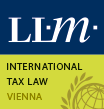Edoardo Traversa
He is professor of Tax Law and European Law at the Faculty of Law and criminology -of which he currently serves as a Dean- and at the School of European Studies of the Université Catholique de Louvain (UCLouvain). He is also a visiting professor at KU Leuven, WU Vienna, Luxembourg and Oxford. His areas of interest cover international and European tax law, including VAT, as well as comparative and constitutional tax law. He is also member of the IFA Belgian Branch and of the European Association of Tax Law Professors (EATLP), where he served as a General reporter of the 2017 Congress on Corporate residence and mobility. He is also Of Counsel at Arteo law firm (Brussels) and acts as an expert in taxation matters for different public authorities at the European and Belgian level. He was Guest professor at WU during the academic year 2022/2023.He is professor of Tax Law and European Law at the Faculty of Law and criminology -of which he currently serves as a Dean- and at the School of European Studies of the Université Catholique de Louvain (UCLouvain). He is also a visiting professor at KU Leuven, WU Vienna, Luxembourg and Oxford. His areas of interest cover international and European tax law, including VAT, as well as comparative and constitutional tax law. He is also member of the IFA Belgian Branch and of the European Association of Tax Law Professors (EATLP), where he served as a General reporter of the 2017 Congress on Corporate residence and mobility. He is also Of Counsel at Arteo law firm (Brussels) and acts as an expert in taxation matters for different public authorities at the European and Belgian level. He was Guest professor at WU during the academic year 2022/2023.Courses:
The Impact of the EU on Member States' Domestic Tax Law
The aim of this course is to analyze how European integration influences the structure of tax systems in the different Member States, from a legal and a policy prospective. It is divided in four parts. First, it provides for a general comparison on the similarities and differences of EU Member States’ tax systems as regards the types and relative importance of taxes. Then it identifies the different EU instruments susceptible to impact directly or indirectly Member States tax laws and policies, such as regulations and directives, ECJ case-law and soft law, both in tax and non-tax areas, such as environmental policy and budgetary control. Thirdly, it analyses specific examples of this EU influence in the area of corporate and income tax, such as anti-avoidance rules, tax incentives or taxation of cross-border situations. The fourth and last part is devoted to taxpayers rights, showing the essential role of European law in enhancing the domestic protection of taxpayers across Member States.
Back to list

